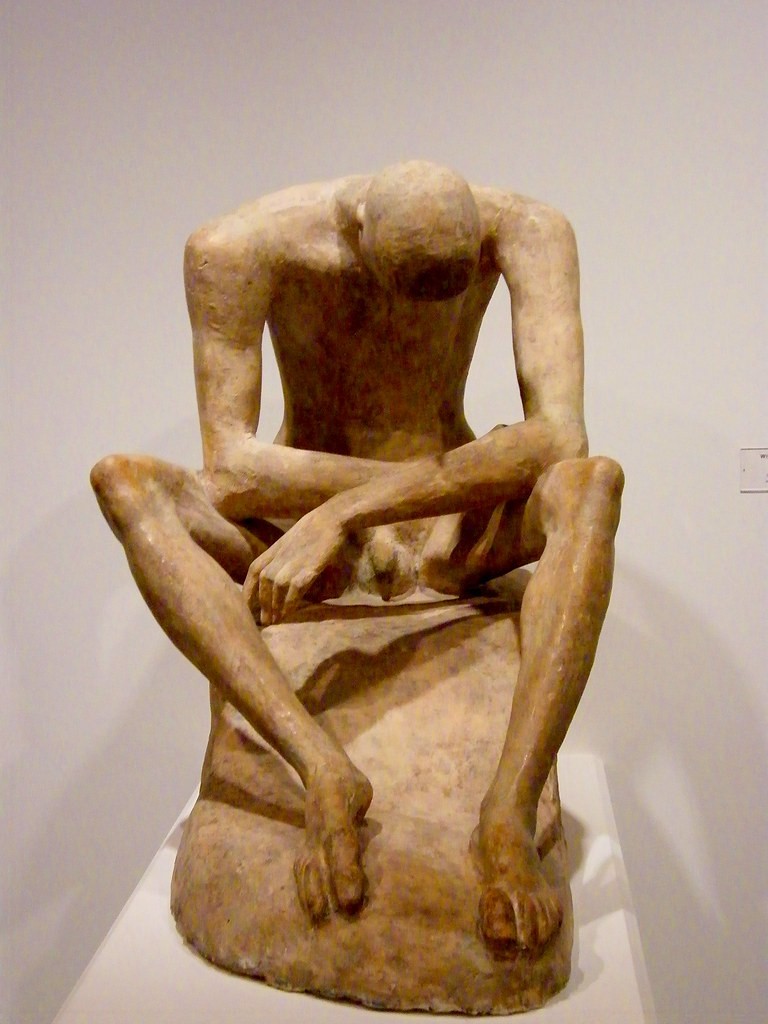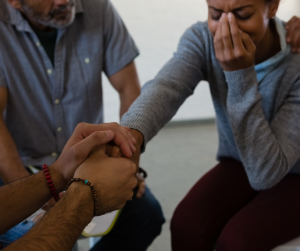Your Humanist Best Self: What to Say to Grieving Friends, Family
By AdministratorThis article is part of a series written by guest contributors exploring how to incorporate humanist values into their everyday lives. The opinions expressed in this article may not necessarily express those of Foundation Beyond Belief, its staff, or donors.
Most theists believe in an afterlife. Humanists don’t. Death connects us all, though, in the most profoundly human way: We hurt, we cry, we need comfort.
 When my wife died last year after a 20-month illness, the flood of emotions was almost unbearable. Sometimes it still is. But, with friends and family—atheists and theists alike—helping me, I’m still here.
When my wife died last year after a 20-month illness, the flood of emotions was almost unbearable. Sometimes it still is. But, with friends and family—atheists and theists alike—helping me, I’m still here.
For many of us, knowing what to say to a grieving friend or family member is a huge challenge. I saw the best and worst last year. One friend told me I wasn’t grieving correctly. Another expressed sympathy, then launched into a monologue about her dog’s death. A neighbor showed up drunk on my front porch and cried until I comforted her. Two long-time friends still can’t bring themselves to talk to me.
All of these people wanted to say things to comfort me. Their hearts were breaking, too. But something about the uncomfortableness of death and their own personal experiences prevented them from supporting me the way they wanted.
As humans, death is something we can’t avoid. As humanists, comforting those dealing with death’s impact is among our most important jobs. It also says something about what we believe.
Honor-bound to connect
The Humanist Manifesto III provides a starting place for dealing with fellow humans in grief. It says:
Life’s fulfillment emerges from individual participation in the service of humane ideals. We aim for our fullest possible development and animate our lives with a deep sense of purpose, finding wonder and awe in the joys and beauties of human existence, its challenges and tragedies, and even in the inevitability and finality of death. Humanists rely on the rich heritage of human culture and the lifestance of Humanism to provide comfort in times of want and encouragement in times of plenty.
Practically speaking, that guidance says two things to me about helping a grieving friend or family member. And it prompts a question that’s become my litmus test for what to say to the bereaved at funerals and celebrations of life.
 Be smart and sensitive. As a humanist, you won’t default to comments about God’s will, soaring with angels or singing in a heavenly choir. Most of my theist friends would abhor such comments. Don’t relax, though. There’s a host of non-religious verbal traps to avoid. Examples include:
Be smart and sensitive. As a humanist, you won’t default to comments about God’s will, soaring with angels or singing in a heavenly choir. Most of my theist friends would abhor such comments. Don’t relax, though. There’s a host of non-religious verbal traps to avoid. Examples include:
- “I know how you feel.”
- “At least you have another child.”
- “It was just his time.”
Be true to your beliefs. Your theist friend or family member likely knows you don’t believe in God. Don’t pretend you do. Be true to the relationship you have with the grieving person. Be human. Be yourself.
What’s the most helpful, authentic thing I can say to my friend who is grieving? That’s my litmus test. You both know your relationship. Don’t overstate or understate your sympathies. Be sensitive to the grieving person’s ability to hear and process what you’re saying. Keep it simple. Never advise.
What meant the most to me
When Stephanie died, a few theist friends said they were praying for her. I always thanked them. If they were important people in her life, I told them so. As humanists, I think we’re honor-bound to make grief a point of connection, not conflict. That means never using your grief or someone else’s to hype your belief system or criticize theirs.
The phrases that meant the most to me: 
- “She was such an important person in my life.”
- “I’ll never forget her.”
- “I treasure knowing her and the time we spent together. I remember the time …”
- “I know how much you loved her.”
- “I wish I had the right words for you.”
- “She loved you so much.”
- “She was such a wonderful person.”
- “You did everything you could for her.”
- “I don’t know what to say, but I can listen.”
- “I love you.”
When in doubt … or tongue-tied, offer a hug. Touch is golden. Silence can be, too. Just having someone to sit with quietly can be comforting. Note: Some friends aren’t comfortable with silence and will feel obligated to fill every second with conversation.
Nine months—to the day—after Stephanie died, I called a grief counselor to schedule an appointment. It was time. “Grief doesn’t have a timetable,” we’ve all heard. The irony of the whole nine-month human gestation period wasn’t lost on me.
Which prompts a to-do item for you, if you’re inclined. If you have friends or family members who’ve lost someone important in their lives in the last year, reach out to them. Unless the circumstances are unusual, they’re still grieving. Call, email or text them. Or, go old school and send a card or letter. Let them know you care. It’s the humane thing to do.
Photo credits:
"The Man in Sorrow" by Stanley Zimny licensed under CC BY-NC 2.0
"I lost the one living thing that meant the most to me." by .matter.licensed under CC BY-NC 2.0
